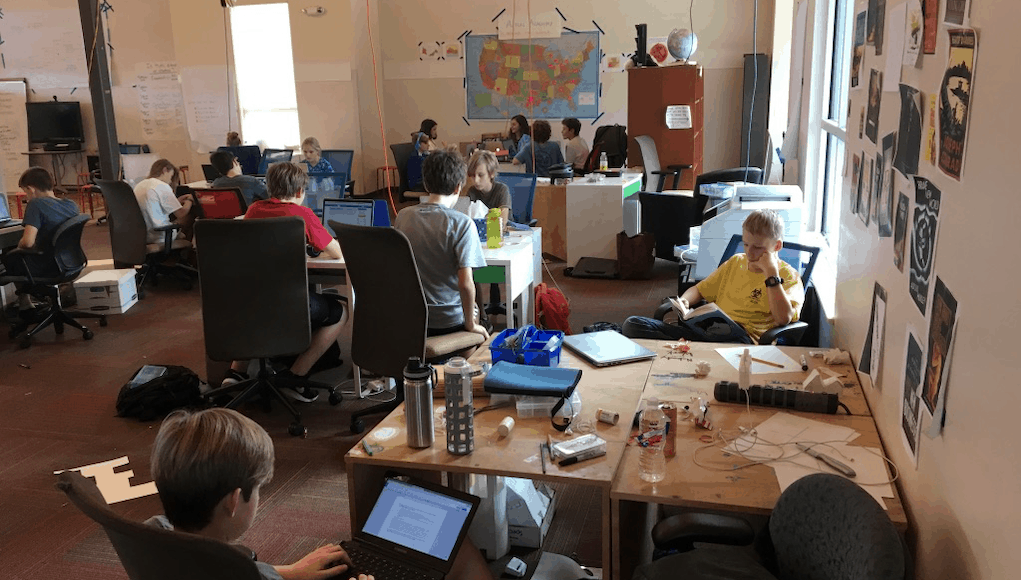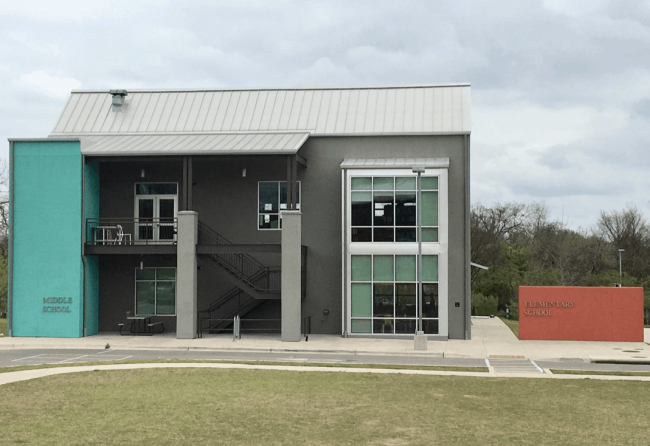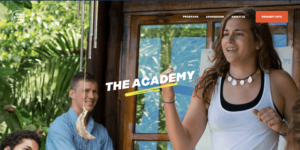Acton Academy: Hero Launch Pad Goes Global

“We believe each person who enters Acton Academy will find a calling that changes the world.”
In a world where most schools have mission statements about preparation for a fuzzy future, the Acton Academy promise is shockingly bold and full of agency.
The promise is that through Socratic dialogs and experiential learning, each member of the Acton community will begin a Hero’s Journey; discover precious gifts and a commitment to mastery; become a curious, independent, lifelong learner; embrace the forging of a strong character; cherish the arts, the physical world, and the mysteries of life; and treasure economic, political, and religious freedom.
That robust promise has activated the Austin microschool for a decade. Launched by Jeff and Laura Sandefer (@LauraSandefer) out of frustration about educational options for their own children, Acton Academy is now the flagship of a global school network with more than 185 ‘owner’ partners in 30 states and 20 countries.
Guiding the Hero’s Journey
Drawing inspiration from the classics, the ‘Hero’s Journey’ is the archetypal series of adventures every human yearns to experience. It describes life at Acton where learners prepare for the challenges, opportunities and adventures of the real world.
The Acton model relies heavily on self-directed learning with a lot of peer feedback—older students help younger students set and monitor goals. Teaching by lecturing or issuing instructions is not allowed at Acton.
Sandefer recently explained, “Unlike a traditional teacher, the ways in which a guide can intervene in the studio are strictly limited.”
A guide’s role is to model behavior that leads to self-directed learning. Every morning, guides welcome each learner by name with a friendly welcome, direct eye contact and a firm handshake.
Guides may offer a morning, midday and afternoon ‘launch,’ a short inspiration, challenge or introduction to tools or processes. Guides may provide coaching on the energy or intentionality of learning in the studio. They may showcase a learner as a role model or turn over more responsibility to learners.
While they do not assign grades or rank students, guides ask tough questions, “Is that the best you can do?” and invite a student to try again if the answer is “no.”
Acton learners earn Servant Leader Badges that celebrate the development of heroic character and signify earned freedom and responsibility. In middle school, for example, a badge is awarded when a learner leads a Socratic dialog. Launch Pad (high school) learners could earn a badge when they lead a campuswide improvement project.
Guides encourage Acton learners to ask three big questions:
- Did I accomplish something meaningful?
- Was I a good person?
- And, Whom did I love and who loved me?
Acton learners earn points for displaying focused effort. They receive feedback from peers and guides on their contribution to the studio. In addition to the academic progress charts that line each classroom, the health and effectiveness of the school community are monitored by survey.
The intentionally limited role of guides encourage self-directed learning and yields a low-cost staffing model that keeps the school affordable for many families.
Skill Sprints, Dialogs and Quests
Younger students have big blocks (2.5-3 hours daily) for individual work on core skills—reading, writing and math. Goal setting, points and badges motivate progress. A suite of adaptive tools support individual progress on skill development.
The goal is to unlock an intrinsic love of reading. During “Drop Everything And Read” time, elementary students occasionally read from a list of “Badge Books.” Middle school and high school learners are required to pitch their individual choices to studio mates for approval to ensure adequate challenge. After reading, learners lead a “Between the Lines” literary critique.
Acton learners become powerful communicators by observing world-class examples, practicing in many genres and vehicles, through peer critique, and by writing for public audiences.
A big afternoon block gives learners a chance to take on quests—challenging hands-on projects that give Acton learners the opportunity to apply skills. The four- to six-week projects are bounded by a compelling narrative and designed to deliver 21st century skills.
Middle school quests might include diagnosing patients in a biology quest or designing a floor plan for a new school in an architecture quest.
Acton learners practice critical thinking and powerful writing and speaking through deep Socratic discussions about heroes, history, and self-governance. They are asked to make and defend difficult real-world decisions building habits and mindsets that forge character.
Each year, the Acton community shares an overarching question (e.g., what does it mean to be human; is truth discovered or created?) that helps learners explore what it means to be a hero and focuses attention for the year.
Acton promotes authentic relationships through written promises and covenants that form a tightly bound community around four character traits:
- self-directed (responsible),
- warm-hearted (kind),
- tough-minded (honest),
- and antifragile (resilient).
Acton learners hold themselves accountable with public exhibitions at the end of each quest and a portfolio of quality work. They may also participate in outside competitions.

A Big Idea Going Global
The small innovative school with a big promise is catching on. The global attraction has been the Acton belief that “each person has a gift that can change the world in a profound way” and a learning model focused on learning to learn, learning to do and learning to be.
The cost-effective model has the potential to deliver more powerful learning experiences than traditional private education. The Sandefers have received over 18,000 applications to join the network.
Owners enroll their own children and pay a $15,000 fee and 3% of ongoing revenue. Owners gain access to detailed guidebooks and over 20,000 pages of learning challenges. They install cameras in classrooms to ensure compliance with Acton principles.
After adding 50 new schools this fall, the tiny Acton Academy team is gearing up to onboard 150 new schools each year thereafter.
Acton is the leading example of four important trends in learning:
- Microschools: tiny schools with powerful relationships
- Organizing learning as skill sprints, projects, and dialogs rather than discipline-based courses;
- Growth community: a commitment to individual and collective growth; and
- Purposeful education that is both student-centered and character-based.
For more, see:
- Acton Academy: Building a Student-Centered School…And Global Network (a 2017 podcast with Jeff Sandefer)
- Acton Academy: An Invitation to a Hero’s Journey (2014 school visit)
- Why Do You Get Up in the Morning? (2015 post by Jeff Sandefer)
- 7 Ways Microschools Help Communities Innovate
Stay in-the-know with all things innovations in learning by signing up to receive our weekly Smart Update.
This post was originally published on Forbes.







0 Comments
Leave a Comment
Your email address will not be published. All fields are required.